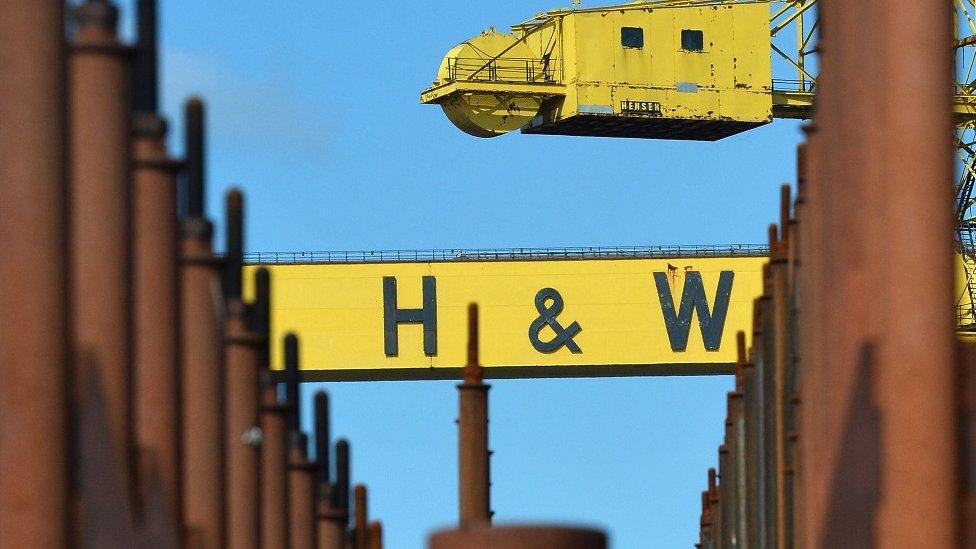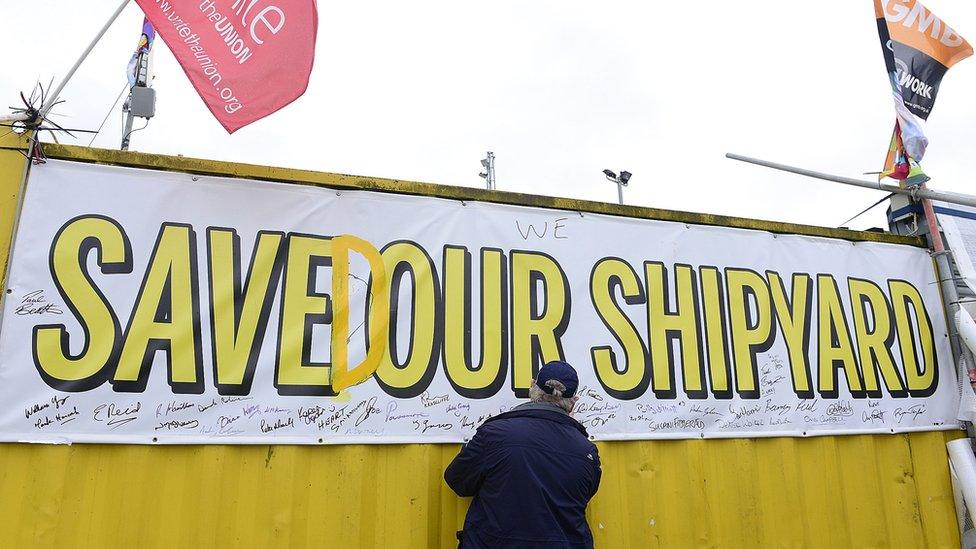Harland and Wolff owner working on wind farm project
- Published

The shipyard in Belfast will be responsible for the building, assembly and delivery of the vessels
InfraStrata, the company that now owns Harland and Wolff shipyard in Belfast, has signed a letter of intent to build two wind farm development vessels.
The potential deal is being worked on with Triumph SubSea Services.
InfraStrata said that once contracted, each vessel would generate revenues of between £340-360m over the 24-30 month fabrication period.
Both parties intend on executing a contract to build the vessels by the end of June 2021.
However, the letter does not provide for any binding obligations at this point.
The London-based energy firm was bought the historic shipyard last year after it went into administration.
Harland and Wolff will be responsible for the build, assembly and delivery of the vessels to Triumph.
The letter initially contemplates the build of one vessel, with the option for an additional vessel to be built in Belfast.
'Potential projects'
The vessels will be used for fixed and floating wind farms, but will also be capable of sub-sea cable laying and marine services for offshore carbon capture and green hydrogen projects.
The next steps towards a binding contract will involve working on the design, agreeing a timeline from fabrication to delivery and agreeing the necessary financing.
Chief Executive John Wood said: "This Letter of Intent is one of many potential projects that we are working on and is in line with our strategy to make the Harland and Wolff Group a leading shipbuilder and fabrication company in the UK."
InfraStrata bought Appledore shipyard in north Devon earlier this year which would also benefit from the project if it goes ahead.
"Should this project proceed to contract, it will provide a sound base for Harland and Wolff to demonstrate its capacity and capability to deliver cutting-edge vessels, whilst retaining sufficient spare capacity for other projects across both yards," he added.
Mr Wood said: "Given the expected quantum of local content that will be required in all UK renewable projects in the future, we have positioned our shipyards to provide pathways to our project development clients, which easily meet their obligations to the government as they move from the planning to the construction phase of their respective projects."
- Published1 October 2019

- Published6 August 2019
